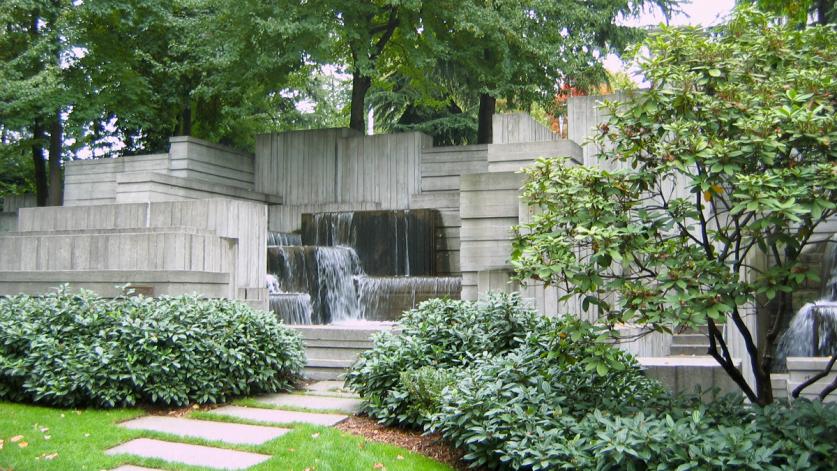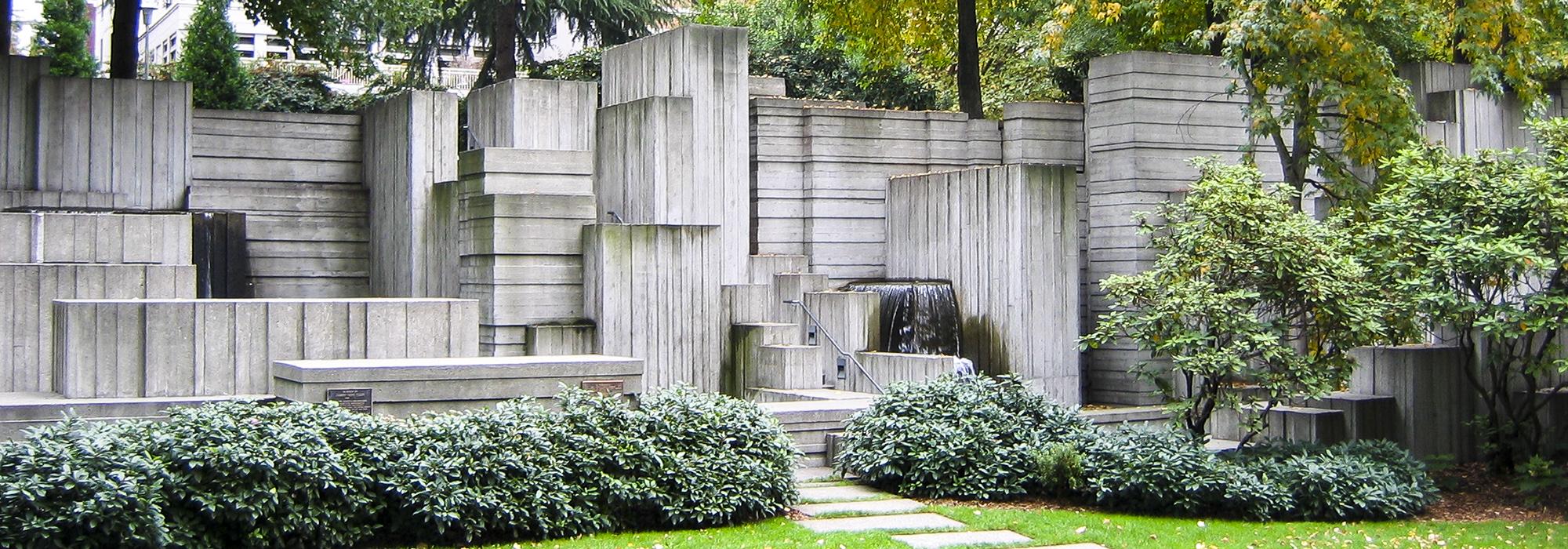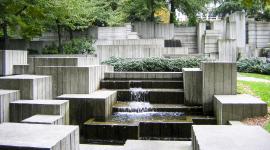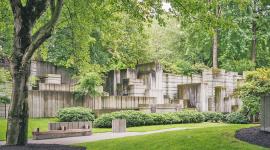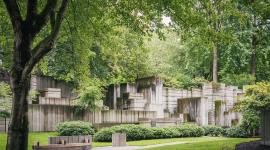Major Agreement Reached on Freeway Park
The fate of Freeway Park, the groundbreaking public space created by Lawrence Halprin & Associates atop Interstate 5 in downtown Seattle, has long been in question. More than a decade ago, TCLF included the park, which was the first ever to cap a freeway, in its Landslide program in the wake of proposals that would have significantly altered its visual and spatial composition, including the removal of two of its character-defining fountains and the demolition of several retaining walls. While those proposals were averted, the park has nonetheless suffered from years of deferred maintenance.
In October 2016, Freeway Park became involved in a Section 106 review, initiated by the Federal Highway Administration (FHWA), stemming from a $1.7 billion expansion of the Washington State Convention Center (WSCC). The center’s expansion was eventually predicated on a public benefits package negotiated by the Community Package Coalition, which included the non-profit Freeway Park Association (FPA). The coalition successfully obtained $10 million in funds to support Freeway Park, as well as $29 million for affordable housing; $16 million for a bicycle plan; $4 million to convert Seattle’s Terry Avenue into a promenade; and other funds for a study to examine the potential to lid Interstate 5. Under the terms of the benefits package, the WSCC would contribute the funds for Freeway Park to the City of Seattle, whose Parks Department would direct repairs and improvements.
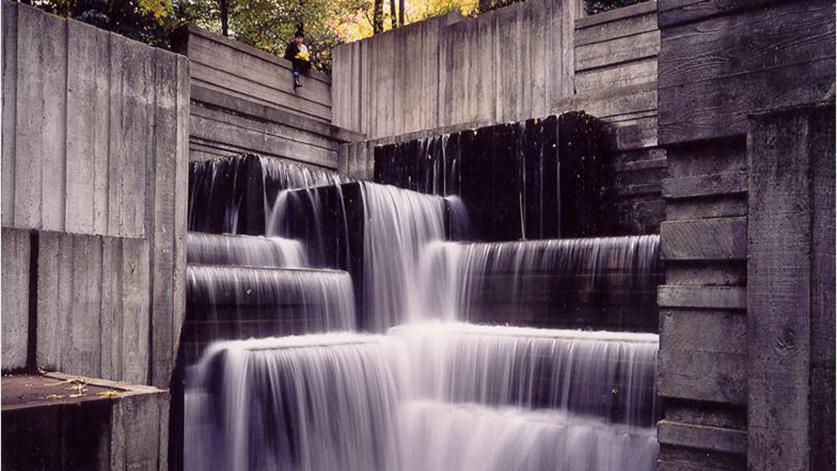
To achieve the restoration and repairs, the City is working in concert with the FPA, which, aided by two grants, has conducted a public-outreach campaign to help identify concerns and solicit feedback. What has emerged is a general plan to restore the park, including repairs to its electrical systems, utilities, and stormwater infrastructure. Work on park entrances, comfort stations, lighting, site furnishings, and wayfinding has also been proposed. The Seattle Design Commission, which will be asked to greenlight the final rehabilitation plan, has given its preliminary approval for the concept, with an emphasis on activities aimed at repair and restoration.
While the funds represent a potential boon for the park and its future, TCLF expressed concerns about the nature of possible “enhancements” to the park in an October 2017 letter to the Seattle Design Commission, cautioning about new features and elements that would be incompatible with the designers’ original vision. Many of those concerns have since been allayed. According to Riisa Conklin, executive director of the FPA, the first phase of the organization's work was focused on "creating an equitable and accessible process for the Seattle community who uses the park," adding that "we are now prepared to fully utilize the incredible resources that people who study Halprin and historical landscapes can bring to that conversation." Other positive news came from the Section 106 process in which TCLF was an official consulting party. The federal review culminated in a Programmatic Agreement signed on March 22, 2018, by the FHWA, the Washington State Historic Preservation Officer, the Washington State Convention Center Public Facilities District, the Stillaguamish Tribe, and the City of Seattle. The agreement specifies that the WSCC will complete a National Register of Historic Places nomination for Freeway Park, and that…
The City of Seattle will follow the processes outlined in 36 CFR 800 in consultation with FHWA and SHPO, and with solicited advisory input from TCLF and other consulting parties, for any proposed project that has potential to affect Freeway Park’s character-defining features as defined in the NRHP nomination of the park as identified in IV(a) and receiving WSCC funding, Washington State Capital Budget funding, and/or federal government assistance (defined as federal funding, permit, or license). All future Freeway Park improvement projects will be completed following the Secretary of Interior’s Standards and Guidelines for the Treatment of Historic Properties, as well as specific guidance for parks found in the Secretary of Interior’s Guidelines for the Treatment of Cultural Landscapes.
As Crosscut and other media outlets reported on March 30, 2018, the expansion of the convention center still faces hurdles from the Seattle City Council, which must give approval to vacate three alleyways for the project to proceed. Even so, the outlook for the park’s future is now brighter, thanks to the efforts of local stewards and those determined to honor and safeguard what is heralded as a singular achievement in landscape architecture, and which, as TCLF’s Charles Birnbaum told the Architect’s Newspaper, is also “a potential National Historic Landmark and UNESCO World Heritage Site.”
